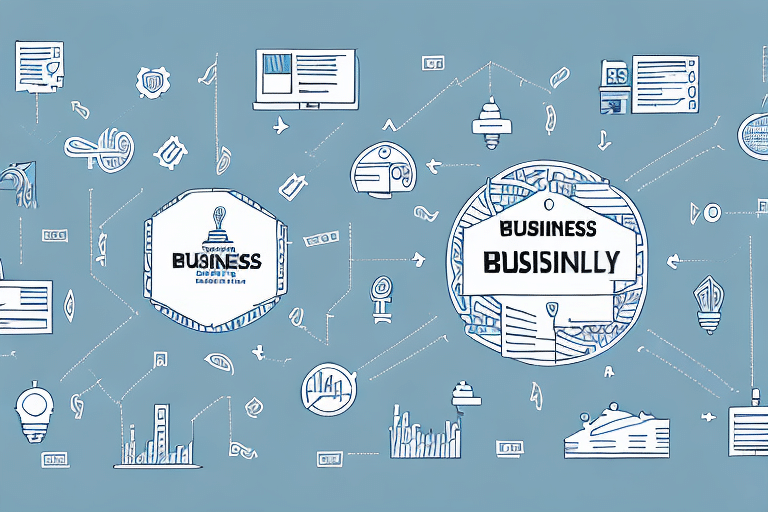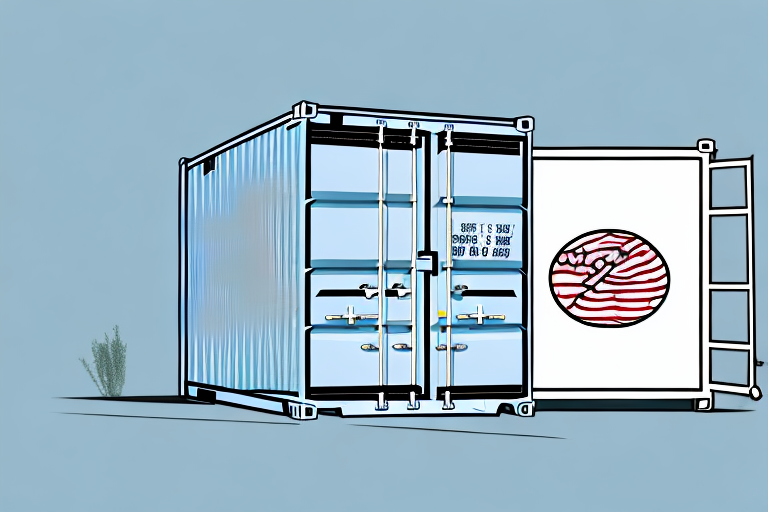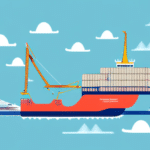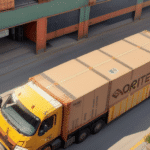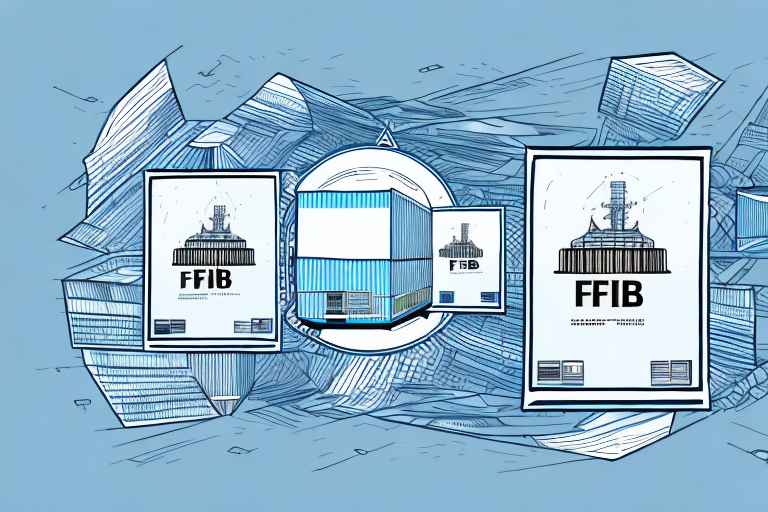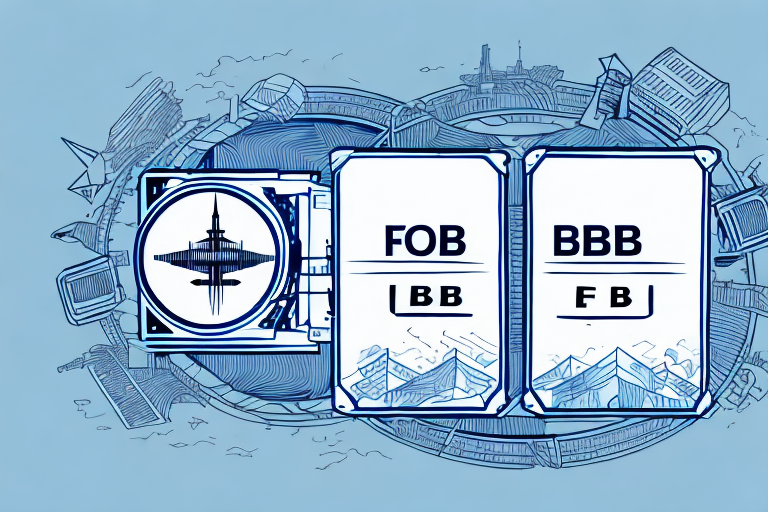What Is a FOB Cost and How Can It Benefit Your Business?
If you're a business owner who regularly imports or exports goods, you may have come across the term FOB cost. FOB stands for Free On Board, and it refers to the cost of the goods plus transportation fees to the port of departure. In this article, we'll cover everything you need to know about FOB cost, from the basics to the benefits, differences with CIF cost, negotiation tips, and future trends.
FOB Cost: Understanding the Basics
When you purchase goods from overseas, you can either pay the CIF (Cost, Insurance, Freight) or FOB (Free On Board) cost. The FOB cost refers to the price of the goods and the charges for transporting them to the port of departure. Once the goods are loaded onto the vessel, the seller is no longer responsible for them, and the buyer assumes responsibility for any further transportation, insurance, or customs fees.
The FOB cost is often used in international trade as it clearly defines who is responsible for the goods at each stage of the shipment process. It also gives importers more control over the logistics and cost calculations. By understanding the FOB cost and how it affects your business, you can make informed decisions about transportation, customs, and insurance options.
It is important to note that the FOB cost does not include any charges or fees that may be incurred after the goods have been loaded onto the vessel. These additional costs can include terminal handling charges, documentation fees, and customs duties. It is essential to factor in these costs when calculating the total cost of importing goods using the FOB method. By doing so, you can avoid unexpected expenses and ensure that your business remains profitable.
Benefits of Using FOB Cost for Your Business
Using FOB cost can benefit your business in several ways:
- Better control over transportation and logistics: As the importer, you have more control over the transportation process and can decide the route, carrier, and mode of transportation that suits your needs. This can lead to cost savings and better transit times.
- Lower costs: FOB cost can be lower than CIF cost, as it does not include insurance fees or some shipping-related charges. By negotiating the FOB cost with your supplier, you can reduce your total costs and increase your profits.
- Reduced risks: By being responsible for the transportation of the goods from the port, you can ensure that they are properly handled, insured, and cleared through customs. This can reduce the risk of delays, damage, or loss of the goods.
Another benefit of using FOB cost is that it allows for greater flexibility in terms of the quantity of goods ordered. With FOB cost, you can order smaller quantities of goods, which can be beneficial for businesses with limited storage space or those wanting to test a new product before committing to a larger order. Additionally, FOB cost can provide greater transparency in the supply chain, as you have more visibility into the origin and quality of the goods you are importing.
How FOB Cost Can Help You Save Money
The FOB cost can help you save money in several ways:
- Negotiation: By negotiating the FOB cost with your supplier, you can lower the total cost of the goods. You can also negotiate related costs such as shipping, packaging, and customs fees, leading to significant savings.
- Control over transportation costs: By managing your own transportation and routing, you can choose the most cost-effective and efficient mode of transportation. This can lead to lower transportation costs and faster transit times.
- Reduced insurance costs: You may save money on insurance costs by purchasing your own transportation insurance policy rather than paying for it through the CIF cost. This also gives you more control over the insurance coverage and claims process.
Apart from the benefits mentioned above, FOB cost can also help you save money by allowing you to have more control over the quality of the goods you receive. By being responsible for the transportation of the goods, you can ensure that they are handled properly and arrive in good condition. This can prevent the need for costly returns or replacements due to damage during transit.
Another advantage of FOB cost is that it can help you save money on storage costs. By taking possession of the goods at the port of origin, you can avoid paying for storage fees at the port of destination. This is especially beneficial if you have a large volume of goods or if the destination port has high storage fees.
FOB Cost vs. CIF Cost: What's the Difference?
The main difference between FOB cost and CIF cost is the responsibility for the goods. With CIF cost, the seller is responsible for the goods until they reach the port of destination, and the buyer is responsible for the customs clearance and delivery. With FOB cost, the buyer is responsible for the goods once they are loaded onto the vessel at the port of departure.
The main advantage of using FOB cost is that it gives the buyer more control over the logistics and can lead to lower costs. However, it also involves more responsibility and risk, as the buyer has to manage the transportation, insurance, and customs clearance. CIF cost, on the other hand, can be more convenient and less risky, but it can also be more expensive and offer less control over the logistics.
It is important to note that the choice between FOB cost and CIF cost depends on the specific needs and circumstances of the buyer and seller. For example, if the buyer has experience in international trade and has established relationships with reliable logistics providers, FOB cost may be a better option. Conversely, if the buyer is new to international trade and is not familiar with the customs clearance process, CIF cost may be a safer choice. Ultimately, it is crucial to carefully consider the advantages and disadvantages of each option before making a decision.
Common Mistakes to Avoid When Calculating FOB Cost
When calculating FOB cost, it's essential to avoid these common mistakes:
- Ignoring hidden costs: FOB cost doesn't include all transportation fees, insurance fees, and customs fees. You need to factor in all related costs to get an accurate picture of the total cost of the goods.
- Not accounting for taxes: Factor in any taxes that may apply to the shipment, such as import taxes, value-added taxes, and excise taxes.
- Not negotiating the FOB cost: FOB cost is negotiable, and you should always try to negotiate a lower cost with your supplier. This can lead to substantial savings on the total cost of the goods.
Additionally, there are other mistakes to avoid when calculating FOB cost. One is not considering the currency exchange rate. If you're importing goods from a foreign country, you need to factor in the exchange rate to get an accurate cost. Another mistake is not considering the lead time. The longer the lead time, the higher the cost, as you'll need to pay for storage and other related costs.
It's also important to note that FOB cost is not the only factor to consider when importing goods. You should also consider the quality of the goods, the reputation of the supplier, and the delivery time. Finding a balance between cost and quality ensures you're getting the best value for your money.
How to Negotiate Better FOB Costs with Suppliers
Negotiating the FOB cost with your supplier can help you save money and get better value. To negotiate effectively, consider these tips:
- Research the market: Before negotiating, research the market to understand the average prices and terms for similar goods. This can give you leverage in the negotiation and help you secure a better deal.
- Be clear about your requirements: Specify your requirements, such as the quantity, quality, delivery time, and payment terms. This helps the supplier understand your needs and tailor the offer accordingly.
- Know your supplier: Research the supplier to understand their reputation, reliability, and financial stability. This helps you avoid scams, delays, and quality issues.
Another important factor to consider when negotiating FOB costs is the shipping method. Depending on the type of goods and the destination, different shipping methods may be more cost-effective or efficient. For example, air freight may be faster but more expensive, while sea freight may be slower but cheaper for large volumes. Discuss shipping options with your supplier and choose the one that best fits your needs and budget.
Tips for Managing Your FOB Costs and Shipping Logistics
To manage your FOB costs and shipping logistics effectively, consider these tips:
- Track your shipments: Use a tracking system to monitor your shipments and ensure they arrive on time and in good condition.
- Communicate with your supplier: Maintain regular communication with your supplier to ensure they understand your requirements and can provide timely updates.
- Have a backup plan: Develop a contingency plan in case of delays, damages, or lost shipments. This can help you avoid last-minute expenses and disruptions.
The Impact of FOB Costs on International Trade
FOB costs play a significant role in international trade and can impact the competitiveness of businesses. By understanding the FOB cost and its implications, businesses can make informed decisions and adapt to changing market conditions.
The FOB cost can affect the supply chain, transportation, and logistics, influencing the relationships between suppliers and buyers. It can also affect production costs and profit margins, determining pricing strategies and sales channels. Therefore, it's essential to monitor the FOB cost and its variations and adjust business strategies accordingly.
Future Trends in FOB Costs and Their Implications for Business Owners
The future trends in FOB costs are likely to be influenced by various factors, such as technology, geopolitics, and economic conditions.
Technology will play a significant role in the transportation and logistics sector, with increased use of automation, data analytics, and blockchain. This can lead to more efficient and cost-effective transportation and logistics but may also disrupt traditional business models.
Geopolitics and trade policies can affect the FOB cost, with changing relationships between countries and the imposition of tariffs and other trade barriers. For instance, recent trade tensions between major economies have led to fluctuating FOB costs for certain goods.
Economic conditions, such as inflation and currency fluctuations, can also impact FOB costs and business profitability. According to the Bureau of Labor Statistics, inflation rates have a direct effect on transportation and logistics costs.
Therefore, it's crucial for business owners to stay informed about the latest developments in FOB costs and adjust their strategies accordingly. By leveraging technology, negotiating better prices, and managing transportation and logistics effectively, businesses can stay competitive and thrive in changing market conditions.
Conclusion
Understanding FOB cost is essential for businesses engaged in international trade. It offers greater control over logistics, potential cost savings, and reduced risks. However, it also requires careful management and strategic negotiation to maximize benefits. By avoiding common mistakes, effectively negotiating with suppliers, and staying informed about future trends, businesses can leverage FOB costs to enhance their competitiveness and profitability in the global market.















